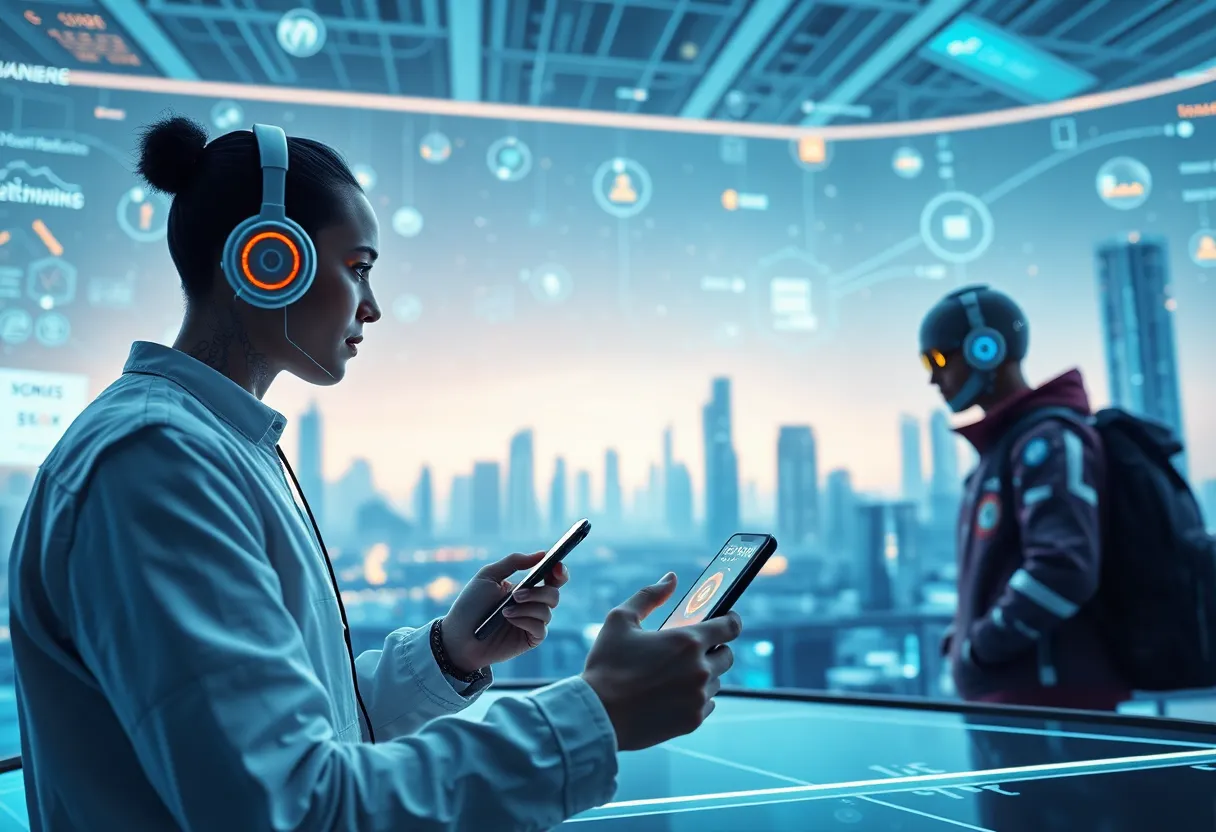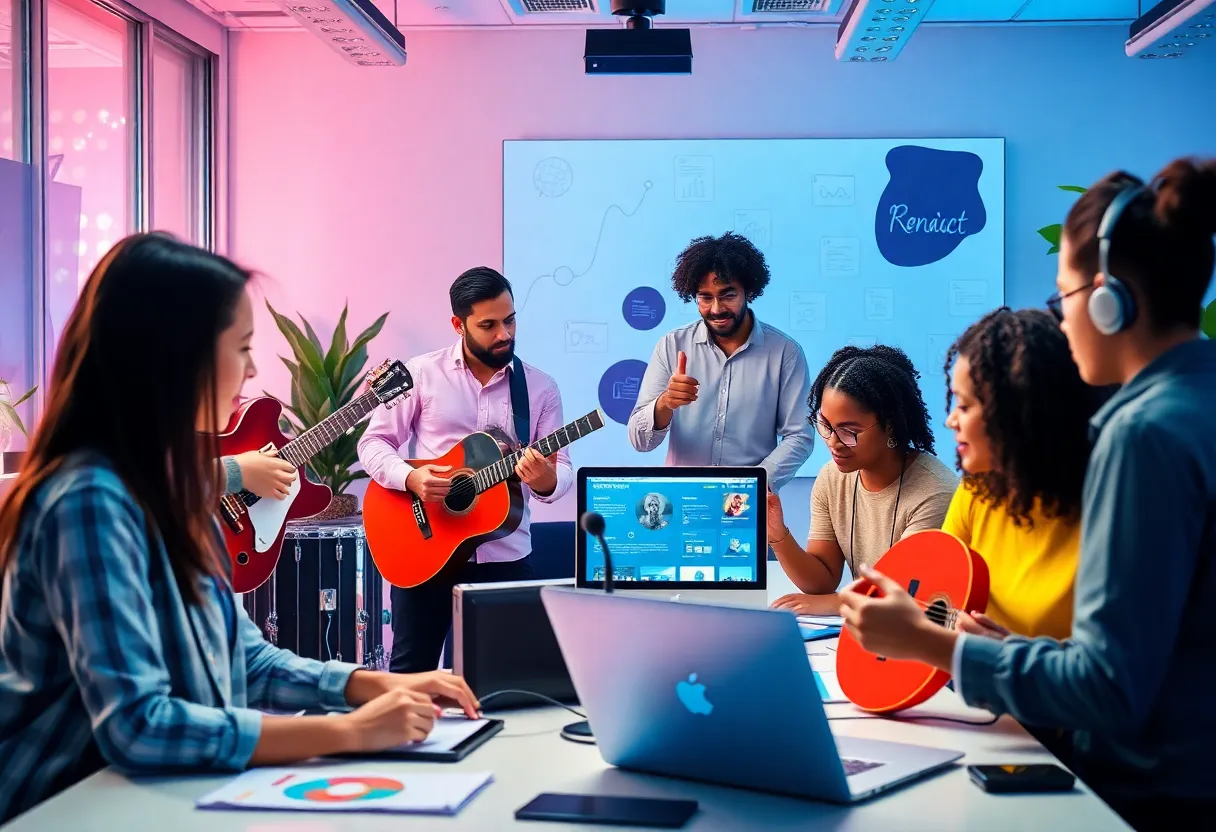News Summary
As the marketing landscape evolves towards 2025, brands are shifting their focus from short-term wins to long-term brand building. This transformation is driven by market saturation and the need for differentiation. With AI becoming integral, marketers must strike a balance between technology and human creativity, emphasizing storytelling and emotional connections to resonate with consumers.
The Future of Marketing: Embracing Brand Building in an AI-Driven World
As we glance ahead to 2025, the marketing world is buzzing with excitement and adaptation. A major shift is taking shape, as brands are putting a renewed focus on brand building rather than just chasing short-term wins. With markets getting more crowded and consumer attention harder to capture, marketers are realizing that telling compelling stories and standing out is the name of the game.
Why Brand Building is Taking Center Stage
One of the driving forces behind this pivot towards brand building is the sheer saturation of the market. With a flood of products and services available, it’s no wonder customers have become a bit disengaged. Brands that want to connect with their audience need to find unique ways to differentiate themselves. Experts agree that strong, authentic branding is essential, particularly in a landscape overflowing with AI-generated content. It’s the heartfelt, human touch behind a brand that creates lasting connections.
Reinvesting in the Basics
Marketing leaders recognize that to make a lasting impression, there needs to be a strategic reinvestment in top-of-funnel marketing and branding activities. This is especially true in the B2B sector, where the competition is fierce and standing out can make all the difference.
The Role of AI in Transforming Marketing
With AI becoming an integral part of marketing operations, we can expect some exciting changes on the horizon. While many might think of AI as just a tool for handling simple tasks, it is evolving. By 2025, experts predict that AI will be adept at managing more complicated workflows, such as campaign optimization and real-time personalization. This means efficiency will skyrocket, and marketing teams, regardless of their size, will be able to manage more comprehensive functions.
However, it’s not about letting AI take over everything. The most effective strategies will come from a blend of human creativity alongside AI capabilities. Marketers are encouraged to be thoughtful about how and when to adopt AI tools, ensuring they enhance rather than complicate existing workflows.
The Shift Towards Better Tech Integration
As companies begin to weave AI into their marketing strategies, there’s also a noticeable shift in how organizations view their tech stacks. They’re moving towards prioritizing fewer yet more comprehensive tools. This means a stronger focus on cohesion and accessibility, allowing teams to operate smoothly without getting bogged down by unnecessary complexity.
The Balance of In-House and Outsourced Efforts
Another area of evolution lies in the relationship between in-house operations and outsourcing. With AI enabling businesses to refine processes that were previously labor-intensive and reliant on external agencies, marketers are now reconsidering which tasks to keep in-house and which to outsource. Striking the right balance between efficiency and maintaining a strong, creative vision will be pivotal.
Valuing Storytelling and Emotional Connections
Despite the rise of AI, there’s a consensus that human expertise will remain vital in areas like storytelling, strategic decision-making, and ethical oversight. Automating repetitive tasks allows teams more time to focus on the creative aspects that inspire and engage customers. As emotional connections become increasingly critical, brands that can weave strong narratives and deliver value-driven messages will stand to win.
Navigating the Future with Oversight and Creativity
As we move forward into this brave new world of marketing in 2025, the challenge for leaders will be to navigate the duality of leveraging AI while retaining the essential human touch. It’s all about finding that sweet spot where technology and creativity intersect, allowing brands to resonate deeply with their audience. The road ahead may present challenges, but with a solid strategy, a touch of creativity, and the smart use of AI, marketers are well-equipped to face whatever comes their way.
Deeper Dive: News & Info About This Topic
HERE Resources
Detroit’s Infrastructure Transformation Projects in 2025
Small Businesses Face Uncertainty as TikTok Ban Threatens Growth
New Development Boosts Bonstelle Neighborhood with AC Hotel
Ann Arbor’s Construction Boom: 50 New Developments by 2025
AI Revolutionizing Marketing Strategies
USM Makes Tough Decisions with Marketing Layoffs
Cleveland Marketing Expert Shares Key Strategies for Businesses
What’s New in Digital Marketing for Law Firms in 2025
Exciting New Chapter at Hugo Boss: James Foster Takes the Helm in Global Marketing
Michigan State Spartans Target Ohio’s Strong 2026 Recruits
Additional Resources
- CMSWire: A Shift Toward Brand Building in 2025
- CMSWire: The Rise of Agentic AI in Marketing
- CMSWire: Brands Need to Focus on Authenticity in 2025
- CMSWire: The Evolving Role of AI in Marketing Strategies
- CMSWire: A Look at the Future of Marketing in 2025








